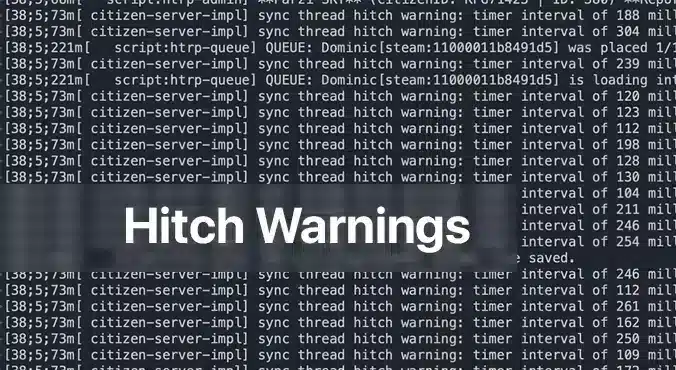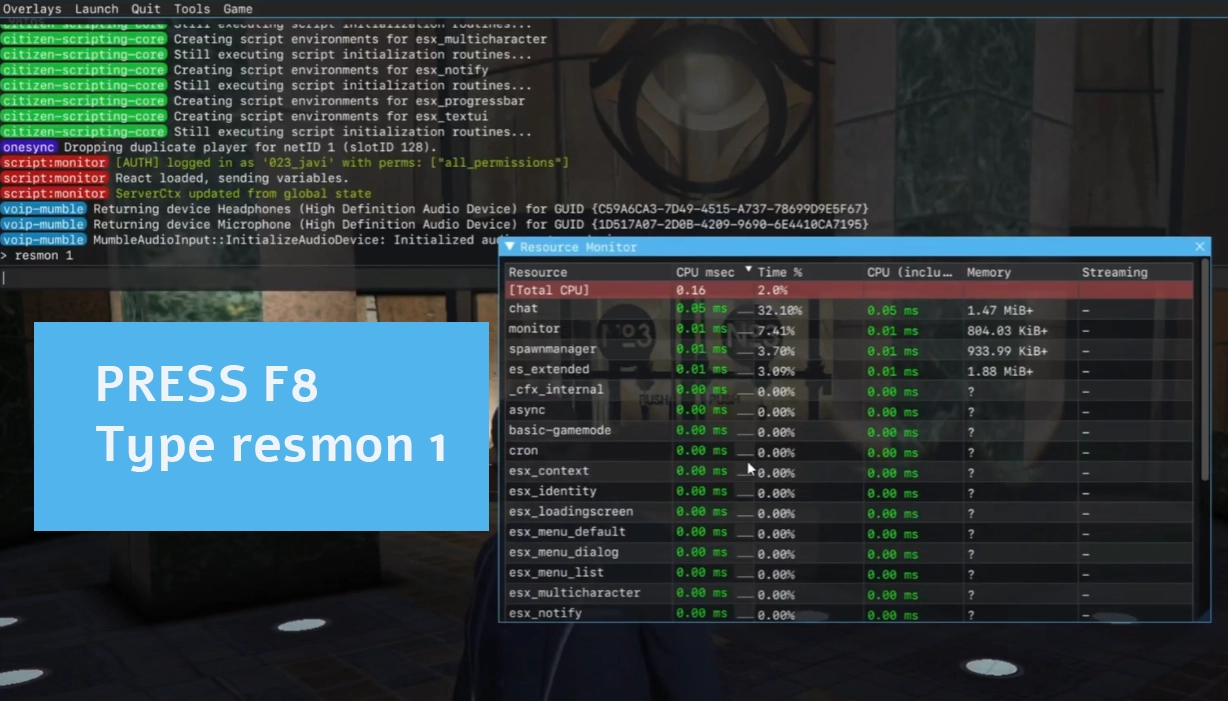Hey there, FiveM fam!
Let’s talk about something that’s been bugging us all: those pesky server thread hitch warnings. You know the ones I’m talking about – they pop up in your console like unwelcome guests, throwing off your game and just generally being a pain.
But fear not, fellow gamers, because we’re about to tackle this problem together. No more getting blindsided by messages like “server thread hitch warning: timer interval of…” or “sync thread hitch warning: timer interval.” It’s time to kick these warnings to the curb and reclaim smooth, uninterrupted gameplay.
What does “Server Hitch Warning” mean?
What causes this? In essence, these warnings signal an issue with unoptimized scripts that are causing significant delays in loading times. The reasons behind these delays can vary, but the outcome remains the same—a frustrating gaming experience for your players.
Solutions to Address Hitch Warnings: Let’s explore some actionable steps you can take to resolve these hitch warnings and ensure smoother gameplay for everyone on your server.
server thread hitch warning: timer interval of …
sync thread hitch warning: timer interval

This error is caused by unoptimized scripts that take a huge time to load. The reasons can be different, however, we will give you some solutions you may try out. We know that FiveM Server hitch warnings are frustrating.
How to fix the ‘hitch-warnings’ on your server
There are multiple solutions you may try out, it really depends case-by-case.
https://www.youtube.com/watch?v=CoYQIWwgfl4
1 – Check your server hardware
First and foremost, assess the hardware powering your server. A robust CPU and sufficient RAM are essential for optimal performance. Use your task manager to gauge CPU utilization and available RAM. Ensure that your CPU model is compatible with FiveM’s requirements and possesses ample processing power to handle the server load efficiently.
2 – Check scripts with server profile
Harness the power of server profiling through tools like txAdmin. By executing commands such as “profiler record 500” followed by “profiler save xyz” and “profiler view xyz,” you can generate insightful reports pinpointing resource-intensive scripts. These reports offer a granular view of script execution times, enabling you to identify and address bottlenecks effectively.
profiler record 500 (then wait till its finished)
profiler save xyz (this will save a file)’
profiler view xyz
You will receive a link where you can check your resources ms time and see what script is exactly taking a long time to load. Open this link with Google Chrome.
3 – Disable/delete unoptimized scripts
Optimize or Remove Problematic Scripts: Once you’ve identified the culprit scripts through profiling, it’s time to take action. If a script is dragging down server performance, consider optimizing it to reduce load times. Alternatively, if optimization proves challenging or impractical, disable or remove the script altogether. This can be accomplished through modifications to your server configuration files or by deleting the respective script folders.
Just disable it via server.cfg or delete the folder. Or both.
Still not working?
Write a comment down below and we’ll be able to help you here.
There is a solution for everything :)




